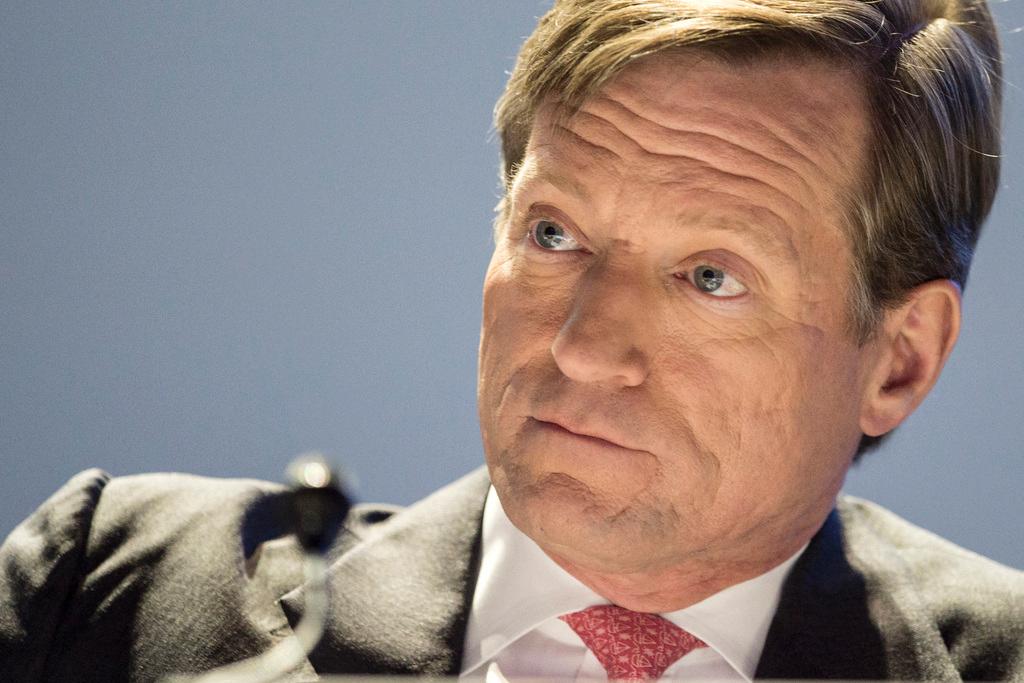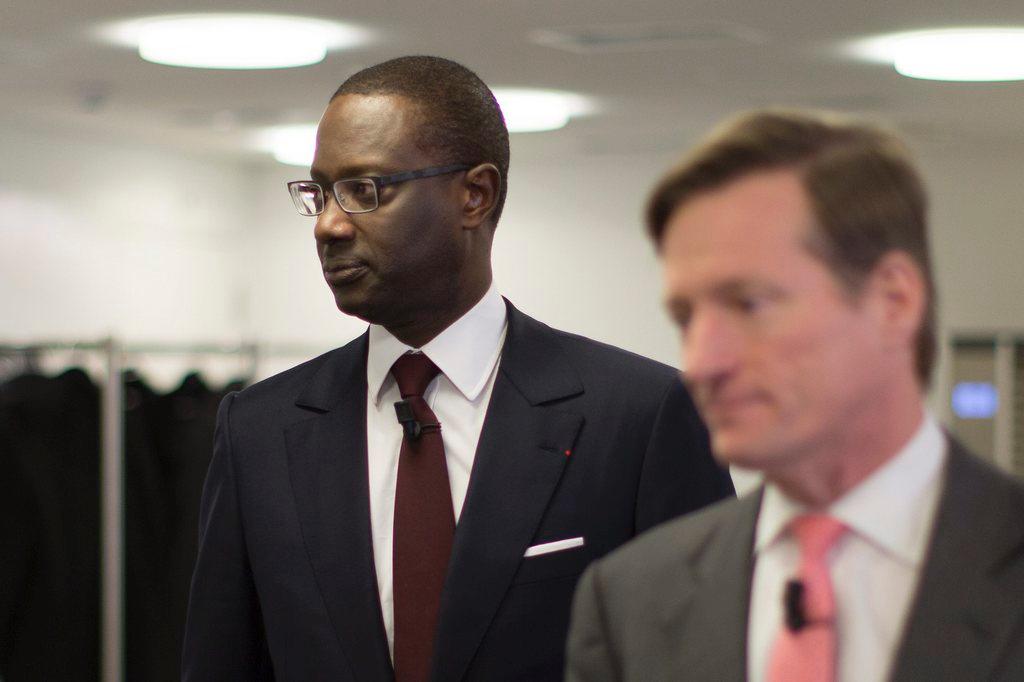
Dougan defends his record as last day looms

When Brady Dougan’s resignation from Credit Suisse was announced in March, the market’s verdict on his reign appeared brutal and decisive as shares in the bank rose sharply on the expectation that new chief executive Tidjane Thiam would do a better job.
A few months later, as the noise around the American financier’s eight-year leadership of the bank has died down, Mr Dougan is ready to talk about his legacy.
The 55-year-old banker strides into a Credit Suisse conference room with his customary smile, his familiar suit and tie, but without his usual good spirits.
He admitted, at his final annual meeting, that Credit Suisse was too optimistic in 2010 and expanded unwisely. But he is a long way from holding his hands up to more general criticisms of the bank’s post-crisis choices.
“Just to be clear, we came through the crisis very well, with no direct support from governments,” says Mr Dougan, who steps down at the end of June after 25 years at the bank.
“We were viewed as, and we actually performed as, one of the best managed through that crisis . . . In 2010 we were getting best bank awards.”
Mr Dougan seems more bemused than bruised by Credit Suisse’s recent share price performance. A renowned optimist, he struggles to explain why the bank’s valuation is behind both local rival UBS and most US banking peers.
“We’ve laid out a strategy which I think is clear . . . but people are only convinced when they see it over a longer period of time,” offers Mr Dougan, invoking his marathoner’s appreciation for the long run.

More
Financial Times
External linkThe strategy, as Mr Dougan sees it, is “a unique balance between the private banking business and the investment banking business, [while] clearly continuing to shift towards private banking and wealth management”.
Outsiders see an institution that still allocates more than half of its capital to an investment bank that has become more expensive to run after the crisis. They say Mr Dougan’s history as an investment banker made him reluctant to make more radical changes, and they criticise slow progress on costs.
“There’s a difference between whether people like the strategy and whether they understand the strategy,” says Mr Dougan. “There are some people who would say we would rather not have you in the investment banking business.”
He believes shrinking the investment bank to half its 2007 size is “one of the things we’ve done extremely well” and says Credit Suisse has adjusted to the new regulatory world faster than rivals.
Mr Thiam is expected to move faster still in reshaping the bank. “We continue to evolve the strategy, Tidjane will obviously continue that but also he’ll bring his own perspective,” says Mr Dougan.

More
Credit Suisse throws CEO succession curve ball
On the prospect of Mr Thiam carrying out the capital raising that Mr Dougan resisted, but which many outside observers say is needed, the American banker says: “Firstly, you would only want a firm to do a capital increase if they needed it and second of all you’d want the capital to be going towards a good use.
“That’s always the way we’ve thought about it.”
Mr Dougan concedes he could have found a “good use” for extra capital himself, but says he chose not to raise any because it was more important to make the bank efficient first.
Safety was Credit Suisse’s watchword at the height of the crisis, and the bank sat on the benches as other lenders picked up assets from failing rivals.
Mr Dougan recalls starting work early, seeing the cleaners there and thinking “these are the people who really depend on their jobs . . . the continued health of the organisation is really important”.
As other chief executives fretted about whether their institutions would survive, Mr Dougan was “100 per cent comfortable that we had a conservative approach, we were securely funded, etc.”
Credit Suisse’s moment in the spotlight came later, in May 2014, with a $2.6 billion (CHF2.4 billion) fine for US tax evasion and charges of criminal offences. The bank went on to post the worst quarterly loss since the collapse of Lehman Brothers. There were calls for Mr Dougan’s head.
“It was tough,” he says of the fine. “We had issues we made amends for, we took accountability for it.”
He stresses that the more recent culture of the company has been “very compliant”, with the bank avoiding the multibillion-dollar fines most rivals incurred for attempting to manipulate interest and foreign exchange rates.
Mr Dougan says he never contemplated quitting over the US tax issues, or over anything else. Even now, with his last day at Credit Suisse looming large, he is reluctant to be drawn on life after the bank, saying only that he will “probably do something different”. Still, Credit Suisse looks set to be his legacy.
He insists it was never about saving the investment bank: “I’ve tried to do what was right for the shareholders, for the clients, for the employees, for the overall enterprise.”
Copyright 2015 The Financial Times Limited

In compliance with the JTI standards
More: SWI swissinfo.ch certified by the Journalism Trust Initiative

















![The four-metre-long painting "Sonntag der Bergbauern" [Sunday of the Mountain Farmers, 1923-24/26] had to be removed by a crane from the German Chancellery in Berlin for the exhibition in Bern.](https://www.swissinfo.ch/content/wp-content/uploads/sites/13/2025/12/01_Pressebild_KirchnerxKirchner.jpg?ver=8f77363a)











You can find an overview of ongoing debates with our journalists here . Please join us!
If you want to start a conversation about a topic raised in this article or want to report factual errors, email us at english@swissinfo.ch.